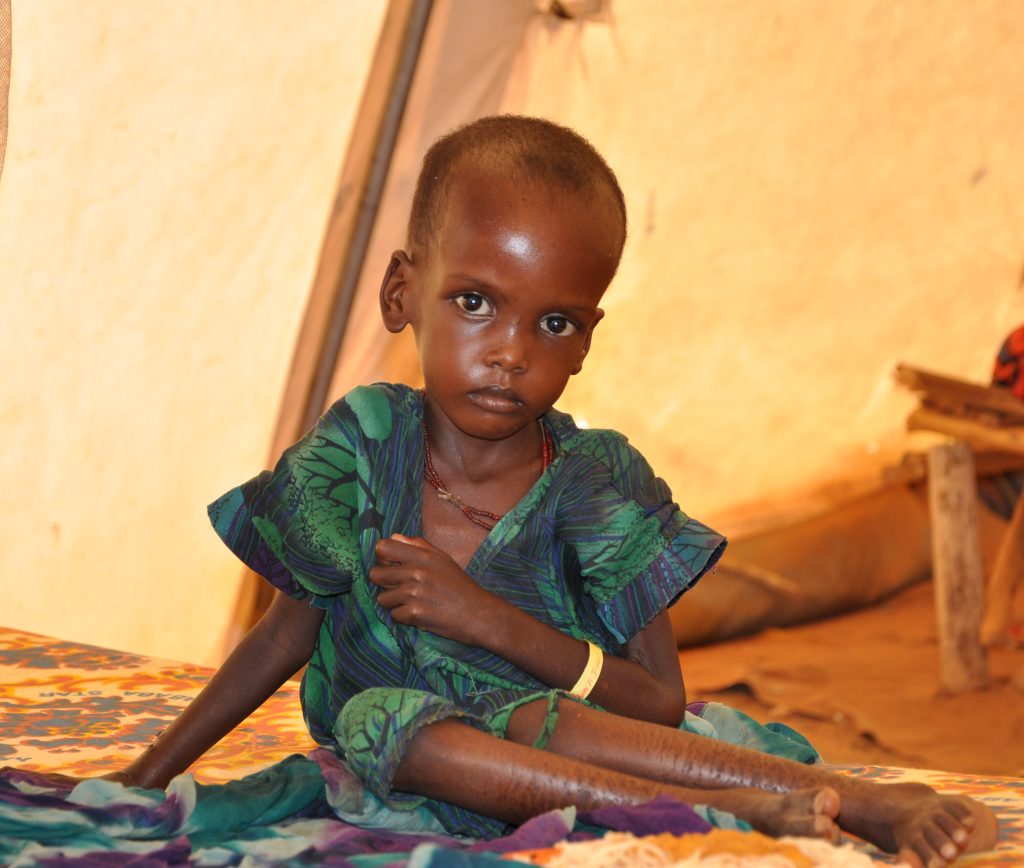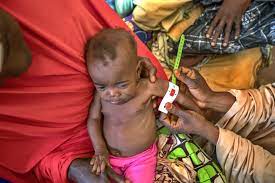
Malnutrition is a major cause of child illness and mortality. Despite several interventions to prevent this condition, it remains unclear how well these measures are adopted by both malnourished and well-nourished children and their mothers, and how socio-economic factors influence this uptake. Poverty remains a significant underlying cause of malnutrition in children.Malnutrition is regarded as the most important risk factor for illness and death globally, associated with 52.5% of all deaths in young children.
According to UNICEF, WHO, and the World Bank, out of the 161 million under-fives estimated to be stunted globally in 2013, over a third resided in Africa. Additionally, about one-third of the 51 million under-fives who were wasted and the 99 million who were underweight were also from Africa. Although there has been a global decline in underweight prevalence from 25% to 15%, Africa has experienced the smallest relative decrease, going from 23% in 1990 to 17% by 2013.In Nigeria, 37% of children, or 6 million children, are stunted (chronically malnourished or low height for age), with more than half of them severely affected.
Additionally, 18% of children suffer from wasting (acutely malnourished or low weight for height), half of them severely. Twenty-nine percent of children are underweight (both acutely and chronically malnourished or low weight for age), with almost half of them severely affected. In children, factors such as low birth weight, feeding problems, diarrhea, recurrent illness, measles, pertussis, and chronic diseases increase the risk of malnutrition.Nigeria has the second-highest burden of stunted children in the world, with a national prevalence rate of 32% among children under five. An estimated 2 million children in Nigeria suffer from severe acute malnutrition (SAM), but only two out of every ten affected children currently receive treatment. Seven percent of women of childbearing age also suffer from acute malnutrition.

In 2023, The Health Emergency Initiative (HEI), a non-profit organization dedicated to improving child health, partnered with Spectranet Ltd, an internet service provider, to combat child malnutrition in communities. The partnership aimed to implement a groundbreaking community-based intervention for acutely malnourished children, bringing hope and healing to the lives of vulnerable children and families. HEI and Spectranet joined hands to address child malnutrition at its root by providing vital support to those in need. Spectranet, known for its unwavering commitment to corporate social responsibility, pledged a donation of N1.1 million to support this life-saving initiative. The donation was utilized judiciously by HEI to identify and assist 46 mothers and 50 children in three primary healthcare centers in Surulere who were acutely malnourished.
One of the goals of HEI is to help malnourished children. Malnutrition remains a pervasive issue affecting millions of children worldwide, hindering their growth and development, and jeopardizing their future. Fortunately, it can be reduced with your help. Join us in the fight against child malnutrition. Your donation and sponsorship can make a significant difference in the lives of vulnerable children and their families. Support our initiatives and help us create a healthier future for our children.
Get involved: https://hei.org.ng/get-involved/join
Together, we can build a stronger, healthier society for our children. Thank you for your support!
Good Food, Strong Children, Great Nigeria!

